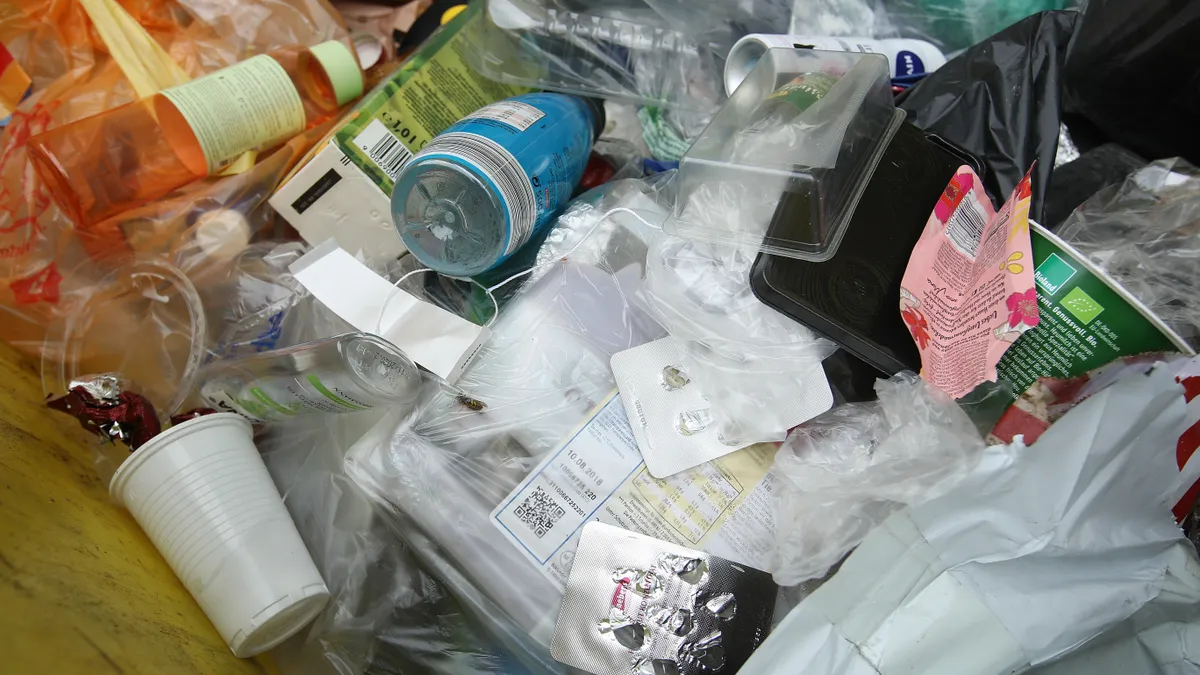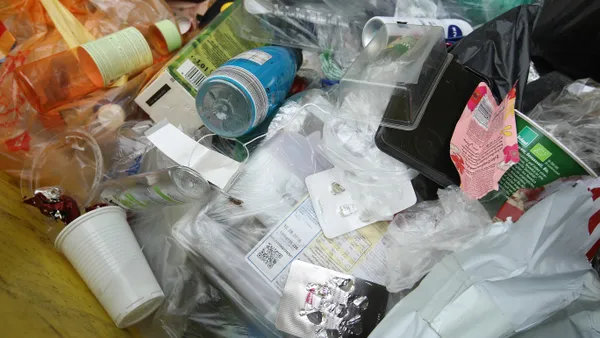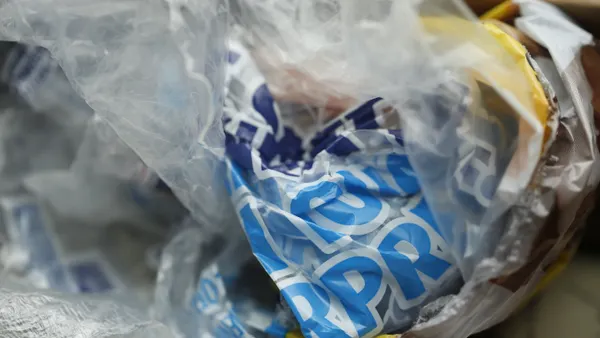A bill meant to extend a permitting and construction deadline for an unnamed chemical recycling facility project in Illinois is causing tension between the plastics industry and environmentalists in the state.
The legislation, HB 1616, would allow a pyrolysis or gasification facility “pilot project” to begin construction by June 2027 in in either Will County or Grundy County. It updates a previous bill, passed in 2019, that required the project to begin by June 2025.
Supporters see the bill as a simple deadline extension for a manufacturing project experiencing planning delays due to the COVID-19 pandemic and supply chain shortages. Yet environmental advocates say the bill would allow the facility to bypass normal state permitting procedures to build the plant in a region they say is already overburdened by pollution.
It’s unclear who is planning to construct the proposed facility, but several companies have announced plans to do business in the region, said Mark Biel, CEO of the Chemical Industry Council of Illinois, a supporter of the bill.
Sources on both sides of the issue noted several possible players. In 2020, INEOS Styrolution and AmSty announced joint plans for a chemical recycling facility for polystyrene in Channahon, which is in Will County. Nexus Circular has also proposed a new plant in Illinois, Biel said, but the company did not specify where. ExxonMobil has said it is “assessing” whether to build an advanced recycling plant in Joliet and is listed among the bill’s supporters, but the company has not been named directly as part of the bill.
The debate over the bill comes as chemical recycling, known in the plastics industry as advanced recycling, becomes a larger part of the discussion around managing plastics. More than 20 states have passed American Chemistry Council-backed laws regulating chemical recycling as a manufacturing process instead of waste management, a clause also in Illinois’ original 2019 facility permitting bill. At the time that bill was passed, only seven states had such laws on the books. ACC says it supported the 2019 bill and supports this year’s proposed extension bill.
The Illinois Environmental Council, the Alliance for the Great Lakes and the Ocean Conservancy spoke against the bill during a press call on Wednesday. The groups generally oppose the reclassification of chemical recycling as manufacturing, saying it’s a way for facilities to skirt certain environmental permitting requirements. They see the deadline extension as setting a bad precedent for companies if they are not able to meet existing requirements and timelines. Others opposing the bill include the Natural Resources Defense Council, the Environmental Law and Policy Center and various environmental groups.
“This plant could go forward without this bill. They would just need to follow normal environmental laws,” said Jennifer Walling, executive director of the Illinois Environmental Council. “This shows a huge amount that they're not willing to go through [for] that normal environmental process. It demonstrates how toxic this facility might really be.”
Yet Biel said in an email that environmental groups want to take advantage of the facility’s business delays to “reverse the intent of Illinois’ elected officials” who voted for the 2019 bill. The project is an important way to “keep plastics in the economy and out of the environment,” he said. Other supporters include the Recyclers Coalition of Illinois, the Illinois Manufacturers’ Association, Illinois State Chamber of Commerce and several unions.
The bill has passed through relevant House committees and is expected to come up for a full House vote soon. All House bills must meet a third reading deadline of March 24 to move forward.
Industry players say the chemical recycling plant issue could potentially intersect with the fate of several other recycling bills the Illinois legislature is debating. One is a set of bills, including HB 2376 and HB 3865, that would set deadlines to ban single-use polystyrene foam food containers in the state. Such bills could potentially be at odds with chemical recyclers who see expanded polystyrene as a feedstock for their facilities, particularly since a significant amount of polystyrene is also produced in Illinois, said Andrea Densham, senior strategic advisor for the Alliance for the Great Lakes.
Illinois’ proposed extended producer responsibility for packaging bill, HB2874, has also drawn discussions over whether the policy should allow for chemical recycling provisions, an issue the Ocean Conservancy and other environmental groups say would damage EPR’s effectiveness. “If you have these types of non-recycling recycling facilities in your state that artificially inflate their recycling rates, and give you credit for burning plastic and making virgin plastic, we're never going to achieve real extended producer responsibility,” said Anja Brandon, the Ocean Conservancy’s associate director of U.S. plastics policy.
Illinois lawmakers are also expected to debate an environmental justice law, which could have implications for future facilities’ permitting requirements. Lawmakers last introduced an environmental justice bill during the previous session.











